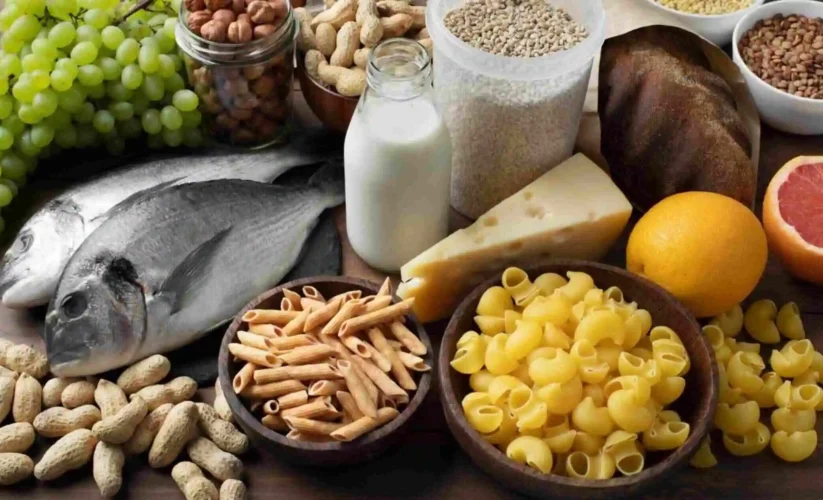
Steering Clear: Dietary No-Gos When Alkaline Phosphatase Levels Spike
Alkaline phosphatase (ALP) is an enzyme found in various tissues throughout the body, including the liver, bones, kidneys, and intestines. It plays a crucial role in several biological processes, such as bone mineralization and liver function. However, elevated alkaline phosphatase levels in the blood can indicate underlying health issues. What foods to avoid if alkaline phosphatase is high? This article will explore the relationship between diet and high alkaline phosphatase levels, focusing on foods that should be avoided to help manage this condition effectively.
Understanding Alkaline Phosphatase
What is Alkaline Phosphatase?
Alkaline phosphatase is an enzyme that catalyzes the hydrolysis of phosphate esters in an alkaline environment. It is found in various tissues throughout the body, with the highest concentrations in the liver, bones, and kidneys. What foods should be avoided if alkaline phosphatase is high?
Role of Alkaline Phosphatase in the Body
Alkaline phosphatase plays a vital role in several physiological processes, including:
Bone mineralization: Alkaline phosphatase is involved in forming and maintaining healthy bones by promoting the mineralization process.
Liver function: Elevated levels of alkaline phosphatase in the blood can indicate liver damage or disease, making it a valuable marker for liver health.
Intestinal health: Alkaline phosphatase helps maintain the integrity of the intestinal mucosa and plays a role in lipid absorption.
What Foods to Avoid If Alkaline Phosphatase is High?
Dairy Products: Dairy products such as milk, cheese, and yoghurt contain high phosphorus levels, which can increase alkaline phosphatase levels, especially in individuals with kidney disease or bone disorders.
Processed Foods : Processed foods, including fast food, frozen meals, and packaged snacks, often contain unhealthy fats, sodium, and preservatives, which can negatively impact liver function and increase alkaline phosphatase levels.
Excessive Red Meat: While lean protein sources are beneficial, excessive consumption of red meat may contribute to liver inflammation and elevated ALP levels. Limit intake of red meat like beef, lamb, and pork, and opt for leaner protein sources like poultry, fish, tofu, or plant-based alternatives.
Sugar and Sugary Foods: High sugar intake can contribute to inflammation, insulin resistance, and liver fat accumulation, which may affect alkaline phosphatase levels. What foods to avoid if alkaline phosphatase is high? Minimize consumption of sugary foods and beverages like candies, pastries, sodas, and sweetened cereals. Choose naturally sweet options like fresh fruits or small amounts of honey or maple syrup for sweetness.
Alcohol:

Excessive alcohol consumption can damage liver cells and impair liver function, leading to elevated alkaline phosphatase levels and other liver-related health issues.
High-Fat Foods : Foods high in unhealthy fats, such as fried foods, fatty meats, and processed oils, can contribute to liver inflammation and increase alkaline phosphatase levels.
High-Oxalate Foods: Some individuals with elevated ALP levels may have underlying bone disorders, and high-oxalate foods can exacerbate calcium absorption issues. Limit intake of spinach, rhubarb, beets, and nuts high in oxalates. Instead, choose leafy greens like kale, collard greens, and broccoli, which are lower in oxalates but still rich in nutrients.
Caffeine and Carbonated Beverages: Excessive caffeine intake and carbonated beverages may impact liver health and exacerbate conditions associated with elevated ALP levels. Limit consumption of coffee, energy drinks, and soda. Instead, hydrate with water, herbal teas, or diluted fruit juices.
Food Additives and Artificial Sweeteners: Certain food additives and artificial sweeteners may disrupt liver function and contribute to inflammation, potentially affecting alkaline phosphatase levels. What foods to avoid if alkaline phosphatase is high? Avoid foods containing artificial colours, flavours, and sweeteners like aspartame and sucralose. Choose whole foods and read labels carefully to avoid hidden additives.
Causes of High Alkaline Phosphatase Levels
Elevated levels of alkaline phosphatase in the blood can be caused by various factors, including:
Liver Conditions
Liver diseases or conditions such as hepatitis, cirrhosis, or liver cancer can cause an increase in alkaline phosphatase levels.
Bone Disorders
Conditions that affect bone health, such as Paget’s disease, osteomalacia, or bone metastasis, can lead to elevated alkaline phosphatase levels.
Other Health Conditions
Certain medical conditions, including hyperparathyroidism, hyperthyroidism, or kidney disease, can also cause an increase in alkaline phosphatase levels.
Importance of Diet in Managing High Alkaline Phosphatase
While diet alone may not directly affect alkaline phosphatase levels, certain foods can exacerbate underlying health conditions, contributing to elevated enzyme levels. Therefore, making dietary changes can be beneficial in managing high alkaline phosphatase levels and improving overall health. What foods to avoid if alkaline phosphatase is high?
Conclusion
In conclusion, managing high alkaline phosphatase levels requires a holistic approach that includes dietary modifications. What foods to avoid if alkaline phosphatase is high? Avoiding foods that exacerbate underlying health conditions contributing to elevated alkaline phosphatase levels can help improve liver function and overall health. By making informed dietary choices and consulting with a healthcare professional, individuals can effectively manage this condition and reduce the risk of complications.





